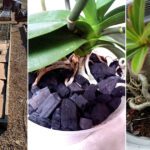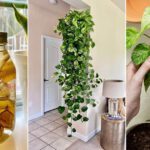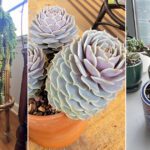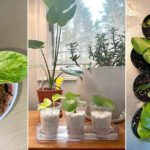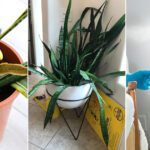Is tap water bad for houseplants, or should you not worry much about it? Let’s learn the importance of water quality for plants below!
Watering is crucial for plant care, but the kind of water you use matters even more. While rainwater and distilled water are typically best for plants, many rely on tap water—a topic that’s sparked much debate. So, is tap water really bad for your houseplants? Get into the details below!
Is Tap Water Bad For Houseplants?

In all honesty, all kinds of water, like rainwater, well water, and even tap water, are acceptable for plants. However, the debate around tap water is that it often contains minerals like chlorine, which can harm plants. If you water your plants with chlorine-infused tap water without letting them sit out, there won’t be any immediate complications. However, with extended use, you will start to see your plants develop brown tips on leaves.
People often oppose tap water for houseplants because of fluoride, which is a valid concern. But the truth is fluoride really isn’t overly harmful to plants except for more sensitive ones like Dracaenas and spider plants. With extended use, the most it will do is cause brown tips on leaves. It would be best to use rainwater to keep sensitive plants safe, as these damaged leaves won’t recover.
How To Use Tap Water For Houseplants?

- Reverse Osmosis: This technological process removes contaminants like calcium, iron, lead, and fluoride from water as it passes through a reverse osmosis system and is collected through a faucet. However, these systems are quite expensive, so they might not be appropriate for casual gardeners.
- Changing the pH: If your tap water’s pH is too high (alkaline), you can lower it by adding a small amount of vinegar or lemon juice once a month. If the water is too acidic, adding wood ash, limestone, or fertilizers with lime or dolomite can help raise the pH.
- Settling Impurities: Allow tap water to sit for 24 hours. This not only evaporates chlorine but also settles heavy metals and impurities at the bottom. Use the clearer water on top to water your plants.
Alternatives To Tap Water For Houseplants

If you do have the choice to omit tap water completely, here are the best choices of water you can use for your houseplants.
1) Distilled Water
Distilled water is the best option for plants sensitive to chlorine, fluoride, and other hard minerals. Plants like Philodendron mostly prefer distilled water. However, it can be difficult for the average gardener to arrange for a water distiller at home. But if you are passionate about gardening, you should go for it, as most plants prefer this type of water.
2) Rainwater
This is, of course, the best water source for any plant as they are most used to rainwater in their natural habitats. It is also quite easy to collect rainwater even if you don’t have rainwater harvesting systems. You can collect it in buckets or jugs. Plus, it is one of the naturally soft water types. What more can be said about using rainwater as the best source for your plants? There are millions of years of evidence, and it’s free!
Note: Some areas may have restrictions on collecting rainwater, so it is best to research your local regulations first.
3) Bottled Water
Bottled water can be a great choice if the local tap water is not safe for plants and if you cannot get your hands on some distilled water. Bottled spring water is even better for your houseplants because of the natural minerals it contains, helping your plants grow. However, it is best to use bottled water only under special circumstances when nothing else is on hand. Not only does bottled water get very expensive in the long run, but it is also not very eco-friendly.
4) Aquarium Water
Dirty fish tank water may not seem quite attractive to water your houseplants, but they are chock full of nutrients! Aquarium water sometimes can have the same amount of nutrients as fertilizers, including phosphorus, potassium, nitrogen, and beneficial bacteria. When changing aquarium water, don’t flush it down the drain like usual; instead, use it on your houseplants. Aquarium water would already be chlorine-free as you would have first used it for your fish. Imagine the amount of water you’ll be saving by recycling!
Generally, if tap water is safe for you to drink, it would be safe for you to drink. So, unless you see your plants get brown tips of leaves, you can continue using tap water.

